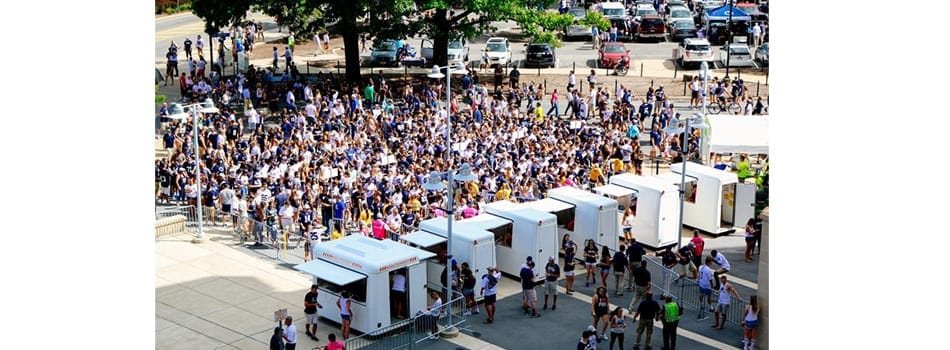Season ticket holders for Penn State University’s football program got a double-whammy last week. Not only did the school announce it would not be allowing fans in the stands for 2020 due to the coronavirus, but it is keeping donation money that is required as a part of the season ticket purchase process, rather than allowing it to be applied to 2021 tickets or refunded.
Needless to say, the reactions have not been positive.
“If I take the option to rollover my season tickets, I still have to pay that fee in addition and I didn’t get the service or product for which I paid the fee in 2020,” Bill Cluck, class of 1982, told Pennlive.com. “There are some that argue that’s fraud.”
Seat contributions have shifted in recent years due to tax law changes introduced by the Trump administration. Previously, schools often required donations from season ticket holders as part of the process for gaining priority for season tickets, but the donations were tax-deductible and separate from the ticket buying process. Now, they are generally a line-item within the ticket purchase – a certain donation per-seat, depending on the stadium location of the seat. At Penn State, the seat contribution prices range from $100 to as high as $2,000 per seat.
As athletic departments scramble to plan around reduced capacity or no capacity amid the coronavirus, most are treating those seat donations in the same fashion they are treating their ticket prices: fans can roll that money over and apply it to 2021 season tickets and donations, or they can request a refund without penalty. Many, like Michigan, have requested that fans convert the donations to the old tax-deductible version for this year as a way of helping the school weather the financial storm.
Penn State isn’t leaving it up to the fans. The donations are being automatically converted, meaning all will have to donate once again to have their seats in 2021. Additionally, the school announced any fans who request a refund of their ticket prices rather than rolling them into next year’s tickets, will not be guaranteed their seating locations or parking for 2021.
Jeff Loeffert of 2002 alumnus from Florida is another. He and his family have been season ticket holders for 15 years. He says that his family pays $1,600 in seat contributions in addition to what they pay for the tickets themselves. Having to pay that again in 2021 means that they’ll have spent $3,200 just for the rights to buy tickets for one football season.
“I feel like the money should have been returned to the card or method of payment,” Loeffert said. “If season ticket holders wanted to make a donation with the money that was given back to them, they should have had that right, liberty and freedom to do so.
“But right now, we’ve paid for a product or service — in this case, the fan experience of going to a football game — that wasn’t delivered,” he argued. “Therefore the money that’s associated with that fan experience should 100 percent be returned.”
Sandy Barbour, Vice President for Intercollegiate Athletics at Penn State, outlined the decision in a letter to the community published on the school’s athletic website. Reduced fan capacity has the school projecting revenue losses “in the high eight figures, reaching nine figures in the case of no competition,” she says. Beyond mitigating the losses, the donations are used towards scholarship opportunities, “and cannot be refunded per University policy as those scholarship allocations have been distributed for the upcoming year.”
As a part of the league-only schedule the Big Ten has planned for the fall, Penn State opens its season against Northwestern on September 5.



